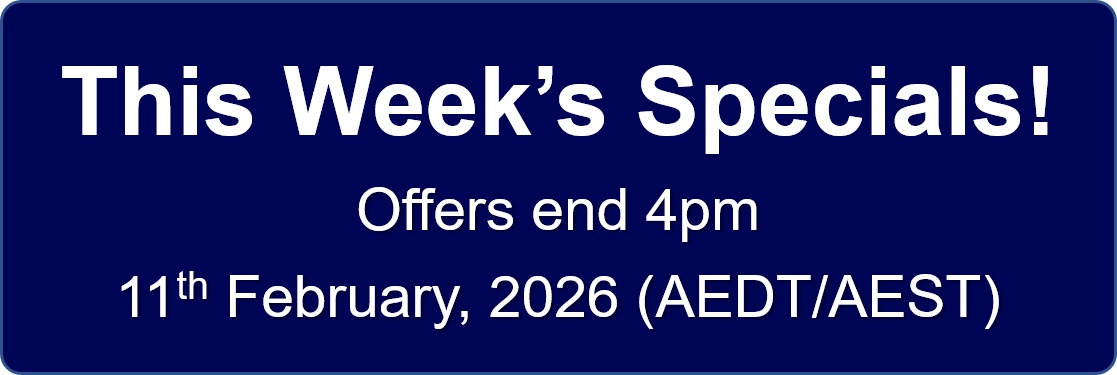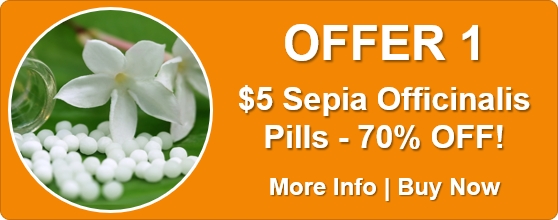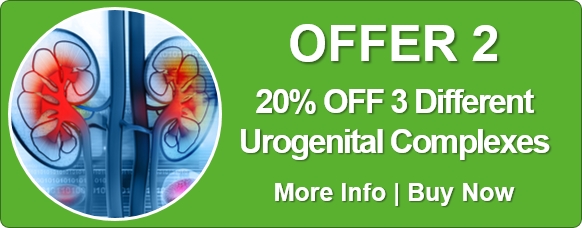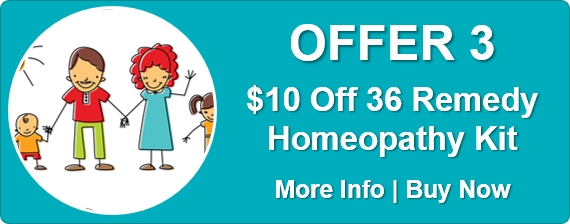The Organon – Aphorism 21-30
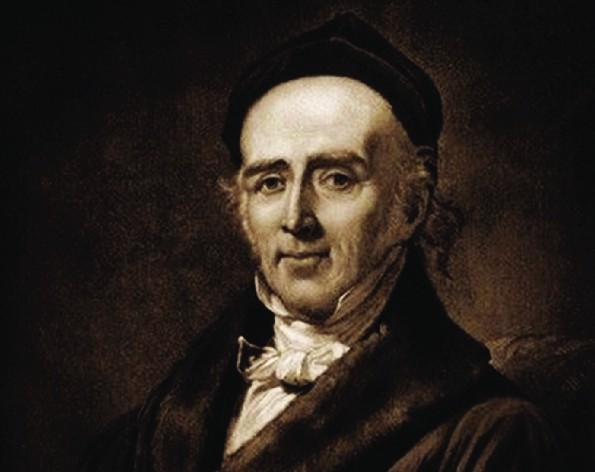
§ 21
Now, as it is undeniable that the curative principle in medicines is not in itself perceptible, and as in pure experiments with medicines conducted by the most accurate observers, nothing can be observed that can constitute them medicines or remedies except that power of causing distinct alterations in the state of health of the human body, and particularly in that of the healthy individual, and of exciting in him various definite morbid symptoms; so it follows that when medicines act as remedies, they can only bring their curative property into play by means of this their power of altering man’s state of health by the production of peculiar symptoms; and that, therefore, we have only to rely on the morbid phenomena which the medicines produce in the healthy body as the sole possible revelation of their in-dwelling curative power, in order to learn what disease-producing power, and at the same time what disease-curing power, each individual medicine possesses.
§ 22 Fifth Edition
But as nothing is to be observed in diseases that must be removed in order to change them into health besides the totality of their signs and symptoms, and likewise medicines can show nothing curative besides their tendency to produce morbid symptoms in healthy persons and to remove them in diseased persons; it follows, on the one hand, that medicines only become remedies and capable of annihilating disease, because the medicinal substance, by exciting certain effects and symptoms, that is to say, by producing a certain artificial morbid state, removes and abrogates the symptoms already present, to wit, the natural morbid state we wish to cure. On the other hand, it follows that, for the totality of the symptoms of the disease to be cured, a medicine must be sought which (according as experience shall prove whether the morbid symptoms are most readily, certainly, and permanently removed and changed into health by similar or opposite medicinal symptoms1) has a tendency to produce similar or opposite symptoms.
1 The other possible mode of employing medicines for diseases besides these two is the allopathic method, in which medicines are given, whose symptoms have no direct pathological relation to the morbid state, neither similar nor opposite, but quite heterogeneous to the symptoms of the disease, is, as shown above, in the introduction (Review of the therapeutics, allopathy and palliative treatment that have hitherto been practiced in the old school of medicine), merely instinctive vital force, which, when made ill by noxious agents, strives to save itself at whatever sacrifice by the production and continuance of morbid irritation in the organism – an imitation, consequently, of the crude vital force which was implanted in our organism in order to preserve our life in health, in the most beautiful harmony; but when deranged by disease, was so constituted as to admit of being again changed to health (homoeopathically) by the intelligent physician, but not to cure itself, for which the little power it possesses is so far from being a pattern to be copied, that all the changes and symptoms it produces in the (morbidly deranged) organism are just the disease itself. But this injudicious system of therapeutics of the old school of medicine can no more be passed by unnoticed that can history omit to record the thousands of years of opposition to which mankind has been subjected under the irrational, despotic Governments.
§ 22 Sixth Edition
But as nothing is to be observed in diseases that must be removed in order to change them into health besides the totality of their signs and symptoms, and likewise medicines can show nothing curative besides their tendency to produce morbid symptoms in healthy persons and to remove them in diseased persons; it follows, on the one hand, that medicines only become remedies and capable of annihilating disease, because the medicinal substance, by exciting certain effects and symptoms, that is to say, by producing a certain artificial morbid state, removes and abrogates the symptoms already present, to wit, the natural morbid state we wish to cure. On the other hand, it follows that, for the totality of the symptoms of the disease to be cured, a medicine must be sought which (according as experience shall prove whether the morbid symptoms are most readily, certainly, and permanently removed and changed into health by similar or opposite medicinal symptoms1) have the greatest tendency to produce similar or opposite symptoms.
1 The other possible mode of employing medicines for diseases besides these two is the allopathic method, in which medicines are given, whose symptoms have no direct pathological relation to the morbid state, neither similar nor opposite, but quite heterogeneous to the symptoms of the disease. This procedure plays, as I have shown elsewhere, an irresponsible murderous game with the life of the patient by means of dangerous, violent medicines, whose action is unknown and which are chosen on mere conjectures and given in large and frequent doses. Again, by means of painful operations, intended to lead the disease to other regions and taking the strength and vital juices of the patient, through evacuations above and below, sweat or salivation, but especially through squandering the irreplaceable blood, as is done by the reigning routine practice, used blindly and relentlessly, usually with the pretext that the physician should imitate and further the sick nature in its efforts to help itself, without considering how irrational it is, to imitate and further these very imperfect, mostly inappropriate efforts of the instinctive unintelligent vital energy which is implanted in our organism, so long as it is healthy to carry on life in harmonious development, but not to heal itself in disease. For, were it possessed of such a model ability, it would never have allowed the organism to get sick. When made ill by noxious agents, our life principle cannot do anything else than express its depression caused by disturbance of the regularity of its life, by symptoms, by means of which the intelligent physician is ask for aid. If this is not given, it strives to save by increasing the ailment, especially through violent evacuations, no matter what this entails, often with the largest sacrifices or destruction of life itself.
For the purpose of cure, the morbidly depressed vital energy possesses so little ability worthy of imitation since all changes and symptoms produced by it in the organism are the disease itself. What intelligent physician would want to imitate it with the intention to heal if he did not thereby sacrifice his patient?
§ 23
All pure experience, however, and all accurate research convince us that persistent symptoms of disease are far from being removed and annihilated by opposite symptoms of medicines (as in the antipathic, enantiopathic or palliative method), that, on the contrary, after transient, apparent alleviation, they break forth again, only with increased intensity, and become manifestly aggravated (see § 58 – 62 and 69).
§ 24
There remains, therefore, no other mode of employing medicines in diseases that promises to be of service besides the homoeopathic, by means of which we seek, for the totality of the symptoms of the case of disease, a medicine which among all medicines (whose pathogenetic effects are known from having been tested in healthy individuals) has the power and the tendency to produce an artificial morbid state most similar to that of the case of disease in question.
§ 25
Now, however, in all careful trials, pure experience,1 the sole and infallible oracle of the healing art, teaches us that actually that medicine which, in its action on the healthy human body, has demonstrated its power of producing the greatest number of symptoms similar to those observable in the case of disease under treatment, does also, in doses of suitable potency and attenuation, rapidly, radically and permanently remove the totality of the symptoms of this morbid state, that is to say (§ 6 – 16), the whole disease present, and change it into health; and that all medicines cure, without exception, those diseases whose symptoms most nearly resemble their own, and leave none of them uncured.
1 I do not mean that sort of experience of which the ordinary practitioners of the old school boast, after they have for years worked away with a lot of complex prescriptions on a number of diseases which they never carefully investigate, but which, faithful to their school, they consider as already described in works of systematic pathology, and dreamed that they could detect in them some imaginary morbific matter, or ascribe to them some other hypothetical internal abnormality. They always saw something in them, but knew not what it was they saw, and they got results, from the complex forces acting on an unknown object, that no human being but only a God could have unravelled – results from which nothing can be learned, no experience gained. Fifty years’ experience of this sort is like fifty years of looking into a kaleidoscope filled with unknown colored objects, and perpetually turning round; thousands of ever changing figures and no accounting for them!
§ 26
This depends on the following homoeopathic law of nature which was sometimes, indeed, vaguely surmised but not hitherto fully recognized, and to which is due every real cure that has ever taken place:
A weaker dynamic affection is permanently extinguished in the living organism by a stronger one, if the latter (whilst differing in kind) is very similar to the former in its manifestations.1
1 Thus are cured both physical affections and moral maladies. How is it that in the early dawn the brilliant Jupiter vanishes from the gaze of the beholder? By a stronger very similar power acting on his optic nerve, the brightness of approaching day! – In situations replete with foetid odors, wherewith is it usual to soothe effectually the offended olfactory nerves? With snuff, that affects the sense of smell in a similar but stronger manner! No music, no sugared cake, which act on the nerves of other senses, can cure this olfactory disgust. How does the soldier cunningly stifle the piteous cries of him who runs the gauntlet from the ears of the compassionate bystanders? By the shrill notes of the fife commingled with the roll of the noisy drum! And the distant roar of the enemy’s cannon that inspires his army with fear? By the loud boom of the big drum! For neither the one nor the other would the distribution of a brilliant piece of uniform nor a reprimand to the regiment suffice. In like manner, mourning and sorrow will be effaced from the mind by the account of another and still greater cause for sorrow happening to another, even though it be a mere fiction. The injurious consequences of too great joy will be removed by drinking coffee, which produces an excessive joyous state of mind. Nations like the Germans, who have for centuries been gradually sinking deeper and deeper in soulless apathy and degrading serfdom, must first be trodden still deeper in the dust by the Western Conqueror, until their situation became intolerable; their mean opinion of themselves was thereby over-strained and removed; they again became alive to their dignity as men, and then, for the first time, they raised their heads as Germans.
§ 27
The curative power of medicines, therefore, depends on their symptoms, similar to the disease but superior to it in strength (§ 12 – 26), so that each individual case of disease is most surely, radically, rapidly and permanently annihilated and removed only by a medicine capable of producing (in the human system) in the most similar and complete manner the totality of its symptoms, which at the same time are stronger than the disease.
§ 28
As this natural law of cure manifests itself in every pure experiment and every true observation in the world, the fact is consequently established; it matters little what may be scientific explanation of how it takes place; and I do not attach much importance to the attempts made to explain it. But the following view seems to commend itself as the most probable one, as it is founded on premises derived from experience.
§ 29 Fifth Edition
As every disease (not strictly belonging to the domain of surgery) depends only on a peculiar morbid derangement of our vital force in sensations and functions, when a homoeopathic cure of the vital force deranged by natural disease is accomplished by the administration of a medicinal agent selected on account of an accurate similarity of symptoms, a somewhat stronger, similar, artificial morbid affection is brought into contact with and, as it were, pushed into the place of the weaker, similar, natural morbid irritation, against which the instinctive vital force, now merely (though in a stronger degree) medicinally diseased, is then compelled to direct an increased amount of energy, but, on account of the shorter duration of the action1 of the medicinal agent that now morbidly affects it, the vital force soon overcomes this, and as it was in the first instance relieved from the natural morbid affection, so it is now at last freed from the substituted artificial (medicinal) one, and hence is enable again to carry on healthily the vital operations of the organism. This highly probable explanation of the process rests on the following axioms.
1 The short duration of the action of the artificial morbific forces, which we term medicines, makes it possible that, although they are stronger than the natural diseases, they can yet be much more easily overcome by the vital force than can the weaker natural diseases, which solely in consequence of the longer, generally lifelong, duration of their action (psora, syphilis, sycosis), can never be vanquished and extinguished by it alone, until the physician affects the vital force in a stronger manner by an agent that produces a disease very similar, but stronger to wit a homoeopathic medicine, which, when taken (or smelt), is as it were, forced upon the unintelligent, instinctive vital force, and substituted in the place of the former natural morbid affection, by which means the vital force, and substituted in the place of the former natural morbid affection, by which means the vital force then remains merely medicinally ill, but only for a short time, because the action of the medicine (the time in which the medicinal disease excited by it run its course) does not last long. The cures of diseases of many years’ duration (§ 46), by the occurrence of smallpox and measles (both of which run a course of only a few weeks), are processes of a similar character.
§ 29 Sixth Edition
As every disease (not entirely surgical) consists only in a special, morbid, dynamic alteration of our vital energy (of the principle of life) manifested in sensation and motion, so in every homoeopathic cure this principle of life dynamically altered by natural disease is seized through the administration of medicinal potency selected exactly according to symptom-similarity by a somewhat stronger, similar artificial disease-manifestation. By this the feeling of the natural (weaker) dynamic disease-manifestation ceases and disappears. This disease-manifestation no longer exists for the principle of life which is now occupied and governed merely by the stronger, artificial disease-manifestation. This artificial disease-manifestation has soon spent its force and leaves the patient free from disease, cured. The dynamis, thus freed, can now continue to carry life on in health. This most highly probable process rests upon the following propositions.
§ 30 Fifth Edition
The human body appears to admit of being much more powerfully affected in its health by medicines (partly because we have the regulation of the dose in our own power) than by natural morbid stimuli – for natural diseases are cured and overcome by suitable medicines.
§ 30 Sixth Edition
The human body appears to admit of being much more powerfully affected in its health by medicines (partly because we have the regulation of the dose in our own power) than by natural morbid stimuli – for natural diseases are cured and overcome by suitable medicines.1
1 The short duration of the action of the artificial morbific forces, which we term medicines, makes it possible that, although they are stronger than the natural diseases, they can yet be much more easily overcome by the vital force than can the weaker natural diseases, which solely in consequence of the longer, generally lifelong, duration of their action (psora, syphilis, sycosis), can never be vanquished and extinguished by it alone, until the physician affects the vital force in a stronger manner by an agent that produces a disease very similar, but stronger to wit a homoeopathic medicine. The cures of diseases of many years’ duration (§ 46), by the occurrence of smallpox and measles (both of which run a course of only a few weeks), are processes of a similar character.

